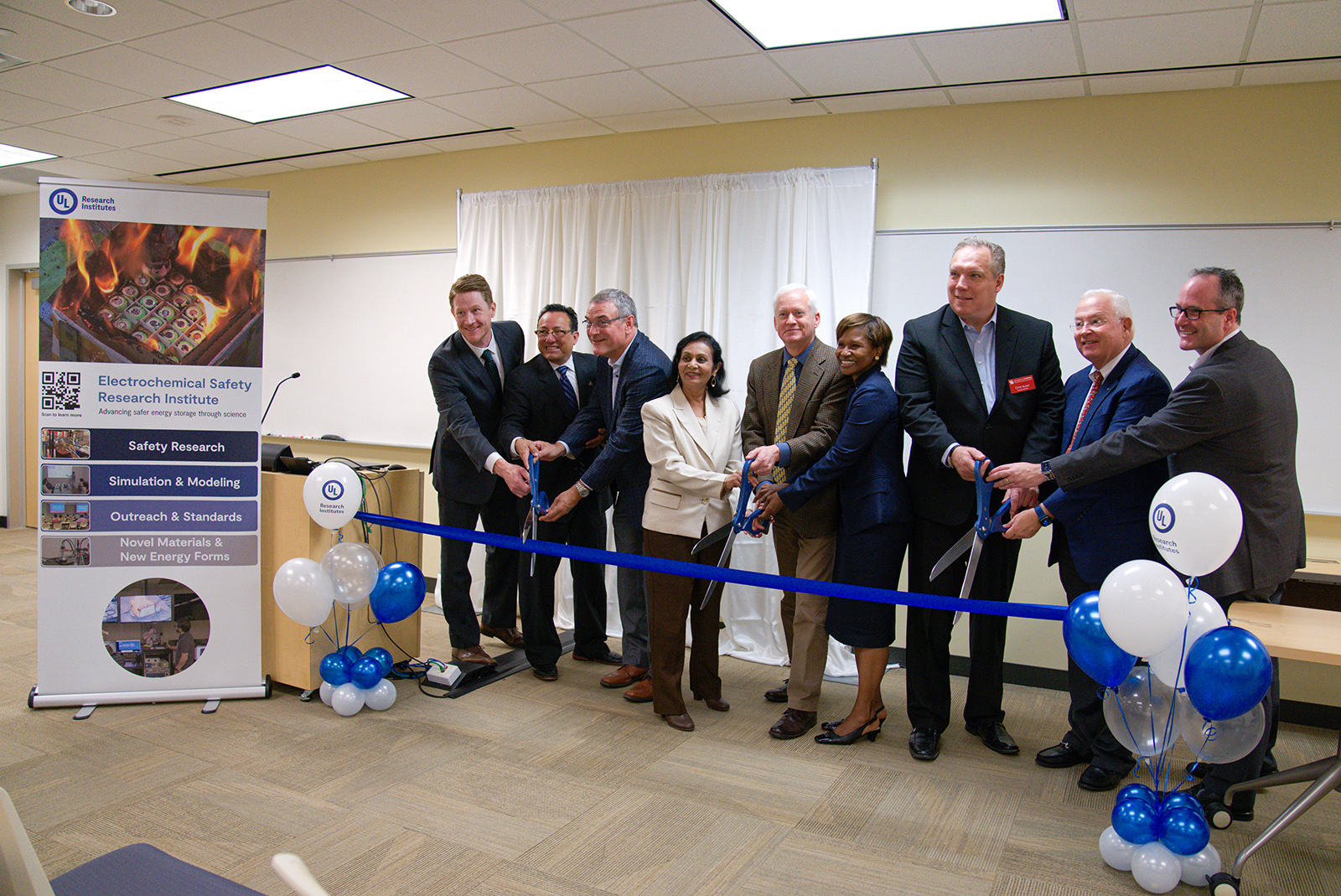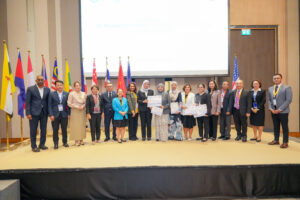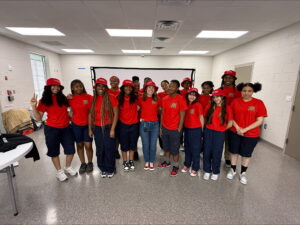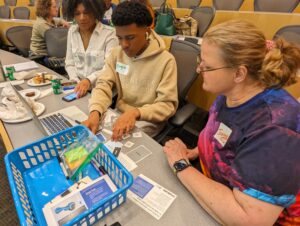The Electrochemical Safety Research Institute, Part of UL Research Institutes, Opens New Lab in Houston

New laboratory to advance collaborations with area’s research universities and scientific organizations
HOUSTON – Nov. 16, 2022 – The Electrochemical Safety Research Institute (ESRI) of UL Research Institutes (ULRI) has launched a new laboratory in Houston to study renewable energy technologies designed to mitigate climate change.
“As the world transitions from fossil fuels to sustainable energy, we are working with research teams across several organizations to lay the scientific groundwork for safe and reliable energy storage alternatives,” said Dr. Judy Jeevarajan, ESRI’s executive director. “Since several of our research partners are based in Houston, the natural progression was to open our own laboratory in the area.”
ESRI’s new laboratory opened earlier this month within the University of Houston Technology Bridge (UHTB), a startup park adjacent to the university’s main campus. ESRI’s research scientists will explore the safety and performance limits of batteries and other renewable energy technologies, seeking ways to characterize and overcome the safety limitations and advance the UL Research Institutes commitment to address the global grand challenge of building resilience for a sustainable future.
“We are significantly expanding both our capacity and scope to better meet today’s increasingly urgent safety challenges,” said Dr. Christopher J. Cramer, ULRI’s chief research officer. “Our new Houston facility is one element of that expansion. The lab will strengthen the synergies between ESRI and our research partners in the area and accelerate scientific discoveries to help create a safer, more sustainable world.”
ESRI already collaborates with other Houston area researchers on several key projects. The Houston laboratory will enable ESRI to strengthen its academic collaborations with the University of Houston on hydrogen research, solid-state batteries, and the synthesis of magnesium-ion separators.
It will also facilitate ESRI’s research partnership with Rice University on lithium-ion cell recycling and the research institute’s work with NASA’s Johnson Space Center on thermal runaway mitigation and micro-USB lithium-ion battery safety. ESRI also collaborates with Stress Engineering Services Inc. on research into thermal runaway propagation in lithium-based cell packages for the G-7 and the United Nations Informal Working Group.
“We’re delighted to welcome the Electrochemical Safety Research Institute to its new home in Houston,” said Dr. Chris Taylor, executive director of the Office of Technology Transfer and Innovation at the University of Houston. “Together, we can build upon our research culture of collaboration as we pursue innovations for the greater good.”
For more information, visit https://ul.org/institutes-offices/electrochemical-safety/
About UL Research Institutes
UL Research Institutes is a leading nonprofit safety science organization with global reach. Dedicated to exploring vital questions related to public safety, we sense and act on risks to humanity and our planet.
Since 1894, our trusted research has engaged the ingenuity of top minds across scientific disciplines to engineer a safer and more sustainable world. Science builds the knowledge required to mitigate increasingly urgent safety problems like environmental and chemical pollution or artificial intelligence inequities — and our rigorous, objective investigations uncover that knowledge.
In collaboration with a global network of scientists and safety professionals, we define the safe and sustainable use of things ranging from legacy materials to new and emerging technologies. Our discoveries support the development of consensus-based standards and policies by UL Standards & Engagement. Together, we are advancing safety science for the greater good.
Discover more at UL.org
Contact
Kristen Delphos
Vice President, Communications and Public Affairs
UL Research Institutes
Kristen.Delphos@ul.org
Michelle Johnson
Director, External Communications
UL Research Institutes
Michelle.Johnson@ul.org
PUBLISHED









